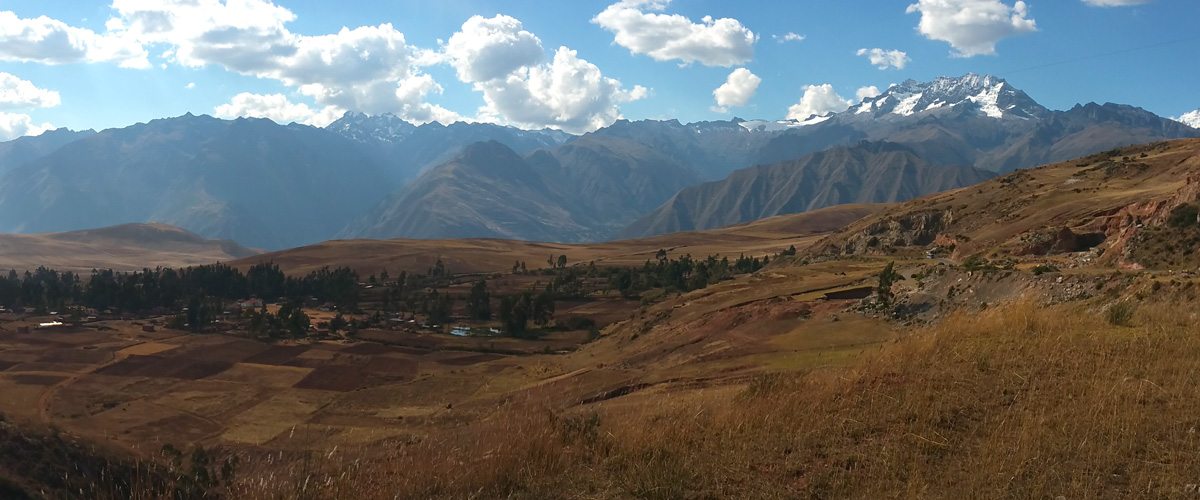
Collaborative Farmer Research Networks Can Help Us Fix Global Food Systems
Published on:
September 23, 2021
By Jane Maland Cady, International Program Director, Collaborative Crop Research Center, the McKnight Foundation
Growing up in La Paz, Bolivia, Magali Garcia Cardenas remembers being told that farmers in the Altiplano region of the Andes observed local animals and flowers to predict whether or not the growing season was going to be wetter than usual. Later, when she was doing her Ph.D. field research to become an agronomist, she learned that this colloquial knowledge wasn’t an urban legend. Rather, it was proof of the farmers’ intimate understanding of weather patterns in a windswept part of the world that is located 13,000 feet above sea level in the harsh glare of the equatorial sun.
That formative insight now guides Garcia’s work at the Universidad Mayor de San Andres in La Paz, where she collaborates with smallholder farmers and other partners to identify weather and climate trends by using traditional forecasting methods—in this case observing cloud cover—and also analyzing data from 16 weather stations across the Altiplano. It’s a dynamic and innovative practice that honors both scientific biophysical knowledge and indigenous knowledge.
“Researchers don’t live under the field conditions that the farmers face every day,” says Garcia. “Farmers are so integrated with the nature where they produce that they have extremely good perceptions of what is happening.” At the same time, they are constantly innovating by introducing new tools, strategies, crop varieties, and technologies—including WhatsApp groups to share their findings with each other.
What’s taking place across the Altiplano is just one example of a growing global practice of farmer research networks (FRN), which strive to improve agriculture and food systems by fostering ecological solutions that are tailored to the specific areas where they will be employed. At a time when climate change is wreaking havoc on the world’s agricultural and food systems, we must listen to the insights and practices of the people who are planting seeds and tilling the soil in these increasingly challenging conditions. FRNs are part of a more equitable system that gives farmers and farm communities a voice.
Beginning in 2012, the McKnight Foundation’s Collaborative Crop Research Program (CCRP), which was founded in the 1980s as a response to global hunger issues that included the Ethiopian famine crisis, hypothesized that a FRN approach would enable smallholder farmers, scientists, and nongovernmental organizations to implement research that was both more participatory and more effective in advancing agroecological knowledge and practice.
Today, we know that FRNs work. Collaborating with academics and other professionals, farmers across the world co-create research agendas and are engaged throughout the process. CCRP is part of this effort, with projects in 10 countries.
In western Kenya, farmers are collaborating with researchers to improve the formula for bokashi, which is a compost made from food waste. In Burkina Faso, FRNs are enhancing the productivity of bambara, a groundnut that is an important source of protein. Female farmers in villages in West African have successfully tested and selected pearl millet seeds to cross breed so that they can be grown in areas with low soil fertility. Farmers in Ecuador are working to manage crop pests without relying on chemical pesticides. Enhancing farmers’ ability to access and adapt agroecological innovations can improve their productivity, food security, and resilience.
“Our objective is not only to grow food to feed the hungry today, but also to do it in a sustainable manner,” says Batamaka Somé, CCRP’s regional representative in West Africa, who grew up in a farming family in Burkina Faso. “Not just for the people in their home communities, but for those who are not even born yet.”
Today, the United Nations convenes its first-ever Food Systems Summit, where everyone from farmers to policymakers will take action to transform the way we grow good food that is affordable, accessible, and supports the environment. The time is now for a new paradigm when it comes to the way research is done to feed the world. This shift will use public research for public good to emphasize a systems-based approach that elevates diverse sources of knowledge and recognizes that our food systems, our health, and our planet are interconnected. FRNs are key to building this more relevant and inclusive system.